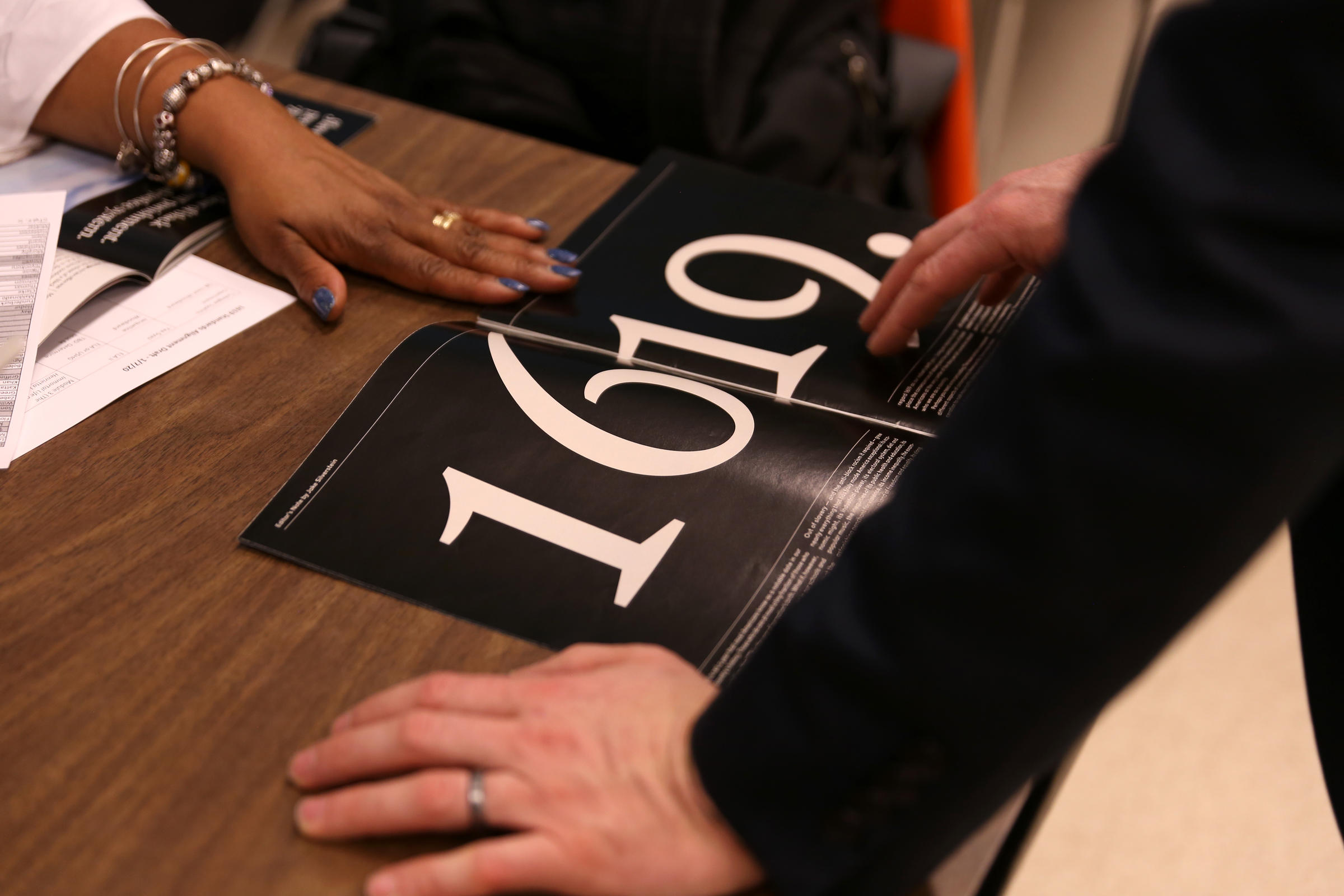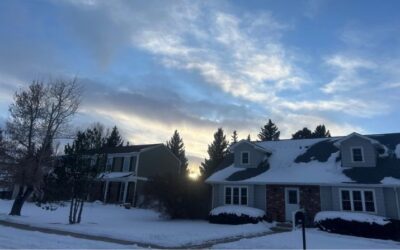Among the hundreds of bills proposed this session at the Wyoming State Legislature was one that its sponsors said would help students better understand federal and state government. The bill failed to pass the House of Representatives’ Education Committee, but the conversation around it reflected the growing national debate on how America’s youth should learn about American history.
Republican Rep. and pastor Jeremy Haroldson of Wheatland, in southeastern Wyoming, said he was inspired to introduce House Bill 177 after talking with an unspecified number of students about topics like the U.S. Constitution and the Bill of Rights.
“As I’ve actually been asking questions of some of our students and asking them along these lines of, ‘Hey, you know, what did you learn about fill-in-the-blank?’ and they’re like, ‘Well, nothing really.’ And I’m like, ‘What?’” Haroldson said while presenting his bill to the committee last week.
The representative also said that he doesn’t think the instruction Wyoming students are getting is giving them a “proper” understanding of American history and government.
“In a lot of ways, it’s very much tilting more towards—more toward a liberal view of education, and because of that I don’t think that this is being represented properly or effectively,” Haroldson said.
The text of the proposed bill said it would require Wyoming school districts to provide “comprehensive instruction” on a bullet-pointed list of topics, which included: “Study of the Wyoming state constitution” and U.S. Constitution, “study of landmark supreme court cases,” “study of civic virtues,” and “study of the changing role of religion and the family in American history,” among other subjects. However, scrutiny from fellow lawmakers from across the political spectrum made clear that the four-page document fell short of that goal.
“Do you know what the 19th Amendment to the U.S. Constitution is?” asked Rep. Cathy Connolly, a Democrat from Laramie, of Rep. Haroldson during his presentation.
Haroldson paused before answering, “I would have to look at it.”
“It’s the right to vote for women,” Connolly answered, “and it’s not included in your bill.”
In another exchange, Rep. Landon Brown, a Republican from Cheyenne, also criticized the bill for its selective list of “threats encountered by the democratic republic and free society,” which it would have required Wyoming schools to address. The “threats” included slavery, “the political extremes of fascism and communism,” religious prejudice and “identity politics.”
“That’s a very subjective and very, very pointed and skewed, if I’ll say it, view of our history and what we’re going on here,” Brown said, adding that he firmly believes in strengthening civics education but that the legislature isn’t the place to do it.
Teton County Schools Superintendent Gillian Chapman agrees—at least on the latter point.
“Some of the very detailed decisions that they’re [state lawmakers are] attempting to make when it comes to specific curriculum is outside of their scope,” she said. “They should stay at a really high level and… not call out very specific things that they believe personally should be part of our curriculum.”
The responsibility for setting standards for what Wyoming educators have to teach, which already includes detailed guidance on American history and government instruction, belongs to the Wyoming Department of Education and State Board of Education.
“So, if the state superintendent and the Wyoming Department of Ed and the state board want to see some of House Bill 177 included, going through the standards would be the way to do that,” Chapman said, “and then there’s a very specific process when standards are being considered or curricular content area is up for review.”
Chapman also said she begs to differ with Rep. Haroldson about how and what Wyoming students, at least in Teton County, are learning about American history.
“Is our education ‘liberal?’ No, I would not say that at all. What we’re trying to do is teach kids what happened and for them to develop the skills they need to fact check and make their own opinion about that.”

The 1619 Project is a reporting initiative by The New York Times Magazine that aims to center the experience and contributions of Black Americans in American history. Several large urban school districts across the U.S., including Buffalo, NY, have integrated some lesson materials from the project into their official curriculum. (Kyle S. Mackie/WBFO News)
A national debate over how students learn about the country’s past has escalated since The New York Times Magazine’s August 2019 publishing of The 1619 Project—a special reporting initiative that aims to center the experience of Black Americans in American history, starting with the first landing of a group of enslaved Africans in the colony of Virginia in 1619. The Times also partnered with the Pulitzer Center to develop curriculum materials for schools based on the project, and a wave of conservative backlash prompted former President Donald Trump to establish his own 1776 Commission last September.
“Our mission is to defend the legacy of America’s founding, the virtue of America’s heroes and the nobility of the American character,” said Trump, speaking during the first White House History Conference at the National Archives on Sept. 17. “We must clear away the twisted web of lies in our schools and classrooms and teach our children the magnificent truth about our country.”
The 1776 Commission published its first and only report, which did not include a bibliography or list of citations, just days before President Joe Biden was inaugurated in January. The report was widely criticized by mainstream historians but drew on longstanding conservative talking points—some of which then showed up in the discussion around Haroldson’s bill.
Indeed, the list of “threats” in House Bill 177 closely resembles a section from the commission’s report titled, “Challenges to America’s Principles.” Slavery is listed first in both sections, and Haroldson’s comments on that subject drew attention and condemnation from both the statewide nonprofit publication WyoFile and national reporters.
“Slavery needs to be discussed, it needs to be brought forward and the different views that, uh, that, slavery was not maybe what it has been painted in this nation completely,” Haroldson said. “We’ve created slavery into a place that has created a position of being stuck, in my opinion, for a people group, and that’s a sad place to be and that was probably in my opinion worse than the slavery itself.”
Connolly was the only lawmaker to denounce Haroldson’s comments during the hearing.
“The discussion regarding slavery that has happened both explicitly and implied I find very, very problematic,” she said. “I think the public needs to understand that we all do not share the same perspective that we heard from the bringer of the bill.”
The proposed bill was voted down in committee 7-2. President Biden also canceled Trump’s 1776 Commission on his very first day in office. Still, partisan fighting over education isn’t likely to go away anytime soon.






